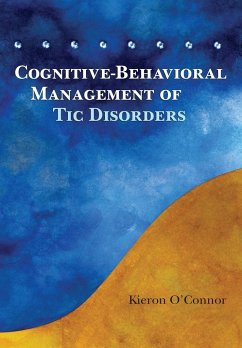
Overcoming Resistant Personality Disorders
A Personalized Psychotherapy Approach

PAYBACK Punkte
31 °P sammeln!
A revolutionary, personalized psychotherapy approach for the treatment of Axis II personality disorders, by renowned expert Dr. Theodore MillonAcknowledging the primacy of the whole person, Overcoming Resistant Personality Disorders: A Personalized Psychotherapy Approach takes into account all of the complexities of human nature--family influences, culture, neurobiological processes, unconscious memories, and so on--illustrating that no part of human nature should lie outside the scope of a clinician's regard.Part of a three-book series, this book provides you with a unique combination of conc...
A revolutionary, personalized psychotherapy approach for the treatment of Axis II personality disorders, by renowned expert Dr. Theodore Millon
Acknowledging the primacy of the whole person, Overcoming Resistant Personality Disorders: A Personalized Psychotherapy Approach takes into account all of the complexities of human nature--family influences, culture, neurobiological processes, unconscious memories, and so on--illustrating that no part of human nature should lie outside the scope of a clinician's regard.
Part of a three-book series, this book provides you with a unique combination of conceptual background and step-by-step practical advice to guide your treatment of Axis II personality disorders.
Detailed case studies are provided throughout the text to illustrate the strategies of personalized psychotherapy for:
_
The Needy/Dependent Prototype
_
The Sociable/Histrionic Prototype
_
The Confident/Narcissistic Prototype
_
The Nonconforming/Antisocial Prototype
_
The Assertive/Sadistic Prototype
_
The Conscientious/Compulsive Prototype
_
The Skeptical/Negativistic Prototype
Destined to become an essential reference for trainees and professionals, this book makes a revolutionary call to return therapy to the natural reality of each patient's life, seamlessly guiding you in understanding the personality and treatment of the whole, unique, yet complex person.
Acknowledging the primacy of the whole person, Overcoming Resistant Personality Disorders: A Personalized Psychotherapy Approach takes into account all of the complexities of human nature--family influences, culture, neurobiological processes, unconscious memories, and so on--illustrating that no part of human nature should lie outside the scope of a clinician's regard.
Part of a three-book series, this book provides you with a unique combination of conceptual background and step-by-step practical advice to guide your treatment of Axis II personality disorders.
Detailed case studies are provided throughout the text to illustrate the strategies of personalized psychotherapy for:
_
The Needy/Dependent Prototype
_
The Sociable/Histrionic Prototype
_
The Confident/Narcissistic Prototype
_
The Nonconforming/Antisocial Prototype
_
The Assertive/Sadistic Prototype
_
The Conscientious/Compulsive Prototype
_
The Skeptical/Negativistic Prototype
Destined to become an essential reference for trainees and professionals, this book makes a revolutionary call to return therapy to the natural reality of each patient's life, seamlessly guiding you in understanding the personality and treatment of the whole, unique, yet complex person.












